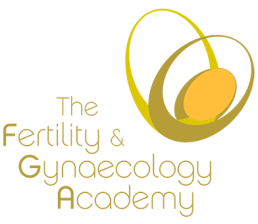World Menopause Day is a day where there is a focus across the globe on increasing awareness around the menopause and conditions linked to it. This year, the focus is on Premature Ovarian Insufficiency (POI), a condition which affects 1 in 100 women under the age of 40 – that’s not an insignificant number. In line with this we felt it important to talk about getting pregnant with premature ovarian insufficiency, its impact on women, couples and their fertility. Menopause means cessation of the monthly periods for at least 6 months. If this happens before the age of 45, it is considered premature menopause. Ovarian insufficiency or failure, which usually happens a few years preceding menopause, is lack of sufficient numbers of good quality eggs to result in a baby within reasonable time of trying. This is considered premature if it happens before the age of 40.
Premature ovarian insufficiency is sometimes also referred to as Premature Ovarian Failure (POF). This condition is when the ovaries stop producing eggs regularly which means that they lose their function. Eggs may not develop properly nor be released from the ovaries.
For most women, menopause happens naturally around the age of 51. When women reach menopause they are unable to get pregnant any more. In some women, this can happen sooner. When it happens at age 45 or under, it is considered premature menopause. It can occur in women in their 20s, 30s and 40s.
But what does this mean for fertility? When there are not enough eggs in the ovaries, the ovaries stop functioning as they should, making becoming pregnant naturally very difficult. It’s not impossible, however, and between 5-10% of women with POI may still conceive as the function of the ovaries can fluctuate. In fact, women with POI may be unaware they have the condition and may think they just have irregular periods, particularly in younger patients.
Dr Gorgy, Fertility Consultant at The Fertility & Gynaecology Academy explains: “POI can be diagnosed by looking at the Follicle Stimulating Hormone (FSH) levels in the blood and also considering your symptoms. Women with POI may experience some of the symptoms of menopause including hot flushes, intermittent periods or none at all. If you are having trouble getting pregnant and are worried you may have POI, we recommend speaking with a specialist who deals with these kinds of cases all the time.”
Here at The Fertility & Gynaecology Academy, Dr Gorgy specialises in difficult cases and is experienced in treating individuals and couples with POI.
Causes Of Premature Ovarian Insufficiency
POI can be caused by:
- Genetics (family history of early menopause, for example)
- Hysterectomy (for any reason, including uterine fibroids, cancer, endometriosis, adenomyosis, and pelvic inflammatory disease)
- Autoimmune diseases like thyroid issues, diabetes or Addison’s disease is an associated medical condition in around 1 in 20 women with POI
- Cancer treatments – some types of chemotherapy and radiotherapy can affect ovarian function. Women undergoing this treatment will usually have the option to freeze their eggs beforehand in order to preserve their fertility
Unfortunately in most cases, the cause of POI is unknown.
Getting Pregnant With POI
It’s important to remember that a POI diagnosis doesn’t mean you should give up your hope of starting a family. Although it’s not impossible to become pregnant naturally with POI, it is very unlikely. That being said, there are fertility treatment options available.
For women who have frozen their eggs, and POI is as a result of surgery or cancer treatment, IVF treatment using your own eggs is an option.
However, for women with POI as a result of genetics or an autoimmune disease, a different route may be recommended as there will usually not be enough high quality eggs available in the ovaries to use. The most commonly recommended option for in these cases is to become pregnant using IVF and donor eggs. The eggs can be fertilised with your partner’s sperm, or using a sperm donor with ICSI.
At The Fertility & Gynaecology Academy we have our own egg donation program which offers both egg donation cycles with fresh donor eggs and egg donation cycles with frozen donor eggs.
Of course, it’s not always clear cut and a simple option, but that’s where a fertility specialist will come in. Our fertility specialist will look at your individual situation and will be able to advise you of the best route forward for the best possible chance of pregnancy.
If you have POI and are considering getting pregnant, or have been struggling to get pregnant and are worried you may have POI, you can talk to us about what options are available for you. Simply call our friendly team on 020 7224 1880.
Alternatively, to speak directly with our fertility doctor, you can book an initial telephone, video or face-to-face consultation online.



